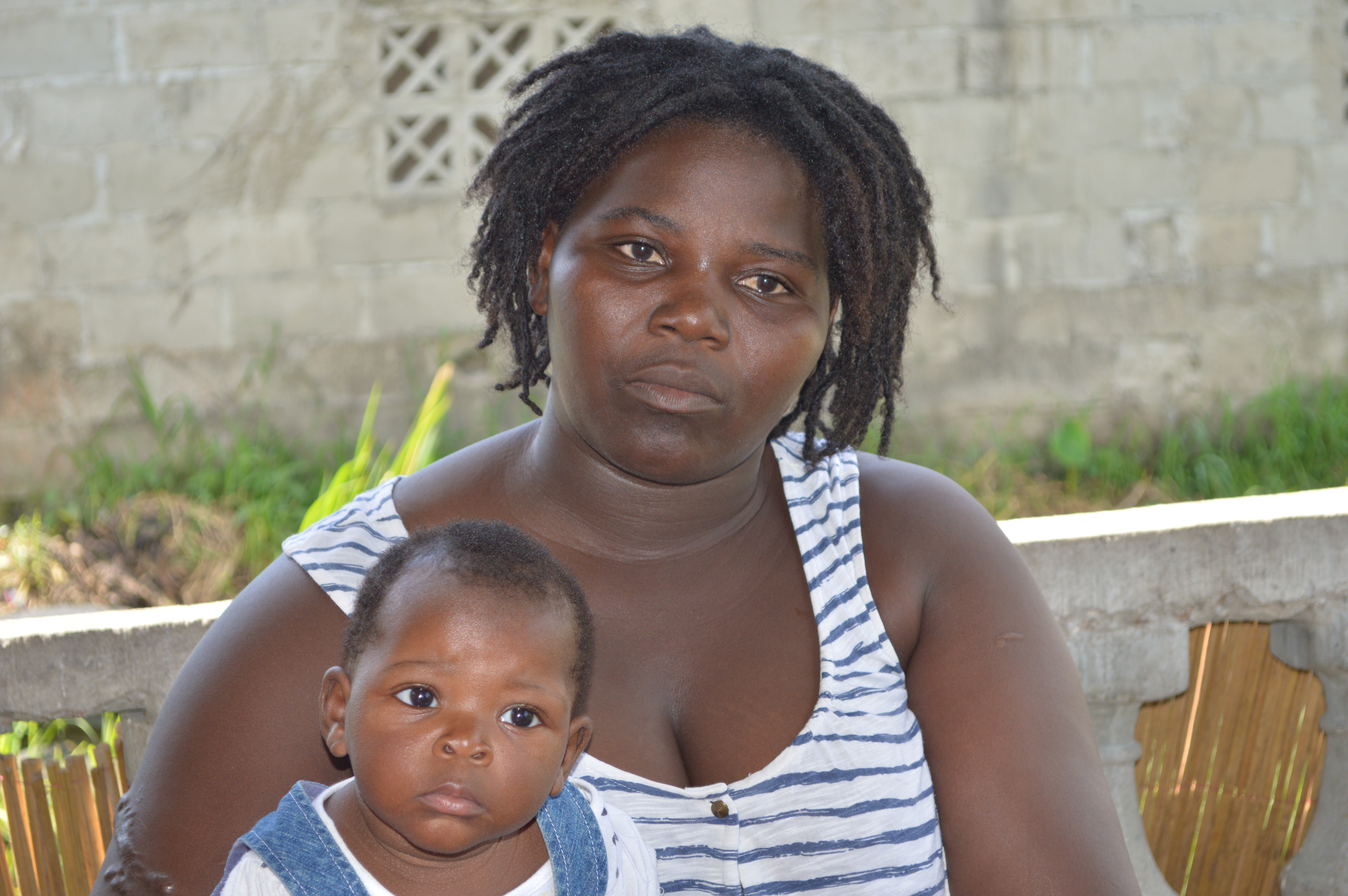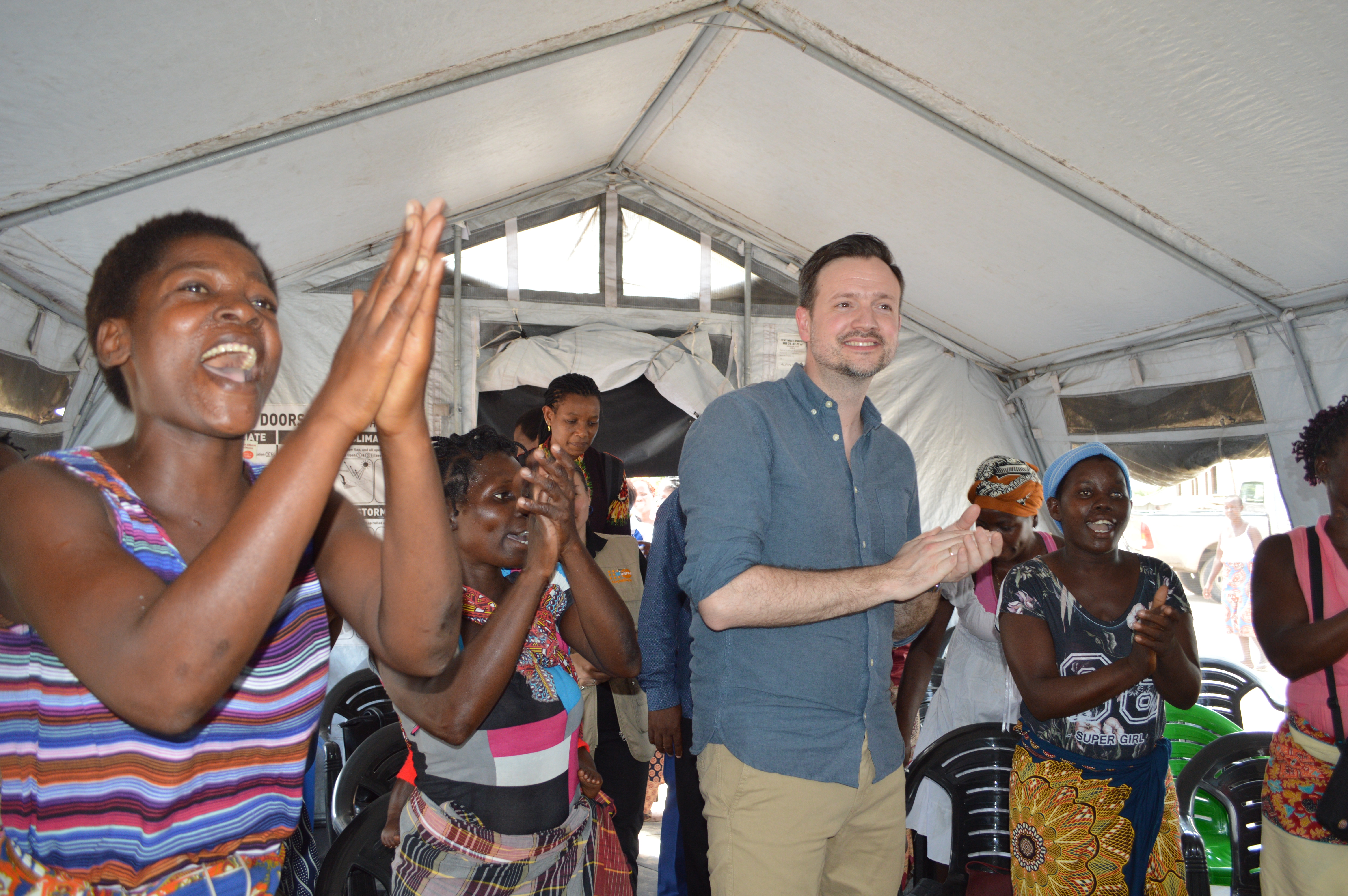On my flight from Maputo to Beira last Wednesday (February 11), I thought about my son. I realized that as a working mom, I have had to leave him enough times and I feel sad to be away from him. But I don’t have to worry about his safety or his health and I knew he would have plenty to eat. In times of disaster, many moms lose that sense of security - and it is devastating. My thoughts then turned to the mission ahead and the communities I visited the last time I came to Beira. I arrived less than a month after Cyclone Idai hit Mozambique on March 14, causing massive destruction, affecting 1.85 million people in the provinces of Sofala, Manica, Zambézia, Tete, and Inhambane.
By April, UNFPA had already procured, delivered and installed reproductive health kits (with medicines, contraceptives, condoms, equipment, and consumables used in health centers and hospitals) and 57 tents to provide support to women and girls. These kits and tents served as temporary reproductive health clinics, women-friendly spaces and safe spaces for youth activities. It is the women in the women-friendly spaces that I thought about on my way to Sofala, I thought of the stories they told of losing their partners, their children and their friends; of the humiliation of menstruating shortly after losing the clothes off their backs; of making the decision to leave older children behind so that one can see a pregnancy through in a safe place.

These were the vulnerable but strong survivors of Cyclone Idai that the Norwegian Minister for International Development, Dag-Inge Ultstein, met on the 14th of February, 2020 on a recent trip to Mozambique. During his visit, Minister Ulstein visited humanitarian response interventions run by the Government in Sofala supported by the United Nations and local partners. UNFPA Deputy Representative, Jenny Karlsen, showed the Minister the women-friendly space established in the Mandruzi resettlement site and explained that these safe spaces promote women’s and girls’ safety and empowerment and help mitigate the risk of gender-based violence (GBV).
Personally, the most poignant thought is that the women in these communities were already amongst the most vulnerable. Even before the cyclones, they often struggled to keep food on the table and provide a decent shelter for their children. After a disaster, women may have to seek more desperate ways to fulfill their basic needs, including through exchange of sex. UNFPA worked with local partners to train activists and aid workers at the safe spaces to empower these women to seek other alternatives.
At the Mandruzi resettlement site, the Minister had a candid conversation with Joaquina Albano, a woman who now dedicates her free time to teaching her neighbors at the site to read and write. She explains how the women came together and begged for literacy lessons so that they can stop relying on others to read their documents and to be able to sign their own names.

Mr. Ulstein also saw the products that the women produce at the women-friendly space so that they can provide additional income for themselves and their families. One of the biggest complaints, shared by Celina, the leader of the women-friendly space, was that the women “lucky” enough to have their husbands around, had to deal with the men swapping food and any other supplies for alcohol. With the carpets, pots, and brooms they produce themselves, the women can buy some household essentials and avoid a fight with their husbands.
In addition to the women-friendly spaces, victims of violence have access to protection desks, supported by UNFPA, where they can go for information, psychosocial support, and referrals to medical and legal services. Activists, like Laura Brito, who was pregnant and had just recently lost her husband before the cyclone hit, now approach women in their communities, at the resettlement sites and elsewhere to encourage them to seek help and to walk away from abusive situations.
Laura told us her story and said that she had never given lectures before, much less on issues related sexual and reproductive health and rights and gender-based violence. But now, she is a proud advocate and says she is trying to instill in her daughter the lessons she learned while she was staying at the Peacock accommodation center. “Now that I have an adolescent daughter, I want to teach her daughter to be more open. I want her to be my friend and feel comfortable telling me her secrets,” shares Laura. “There is a lot of violence nowadays and I don’t want her to feel that she needs to hide things from me.”

During my 2-day mission, Laura took us inside her roofless house which she is now slowly trying to rebuild with money she receives from planting and selling rice. With tears in her eyes, she tells me that because of her pregnancy, she left her three older children at home so that she could have access to medical (and other) assistance at the center. Holding on to the bag she received as part of her dignity kit, she thanked Alex Muianga, UNFPA Community Organizer, and the UNFPA team for all their support, for the capulana she received in the kit, and for the training she received as an activist. Her daughter is now 9-months old and her family is reunited but struggling to rebuild.

Reflecting back on my trip, I realized that Laura and I are not that different, we are both single mothers trying to make sure our children are safe, fed and healthy. But in Laura’s journey through life, she has had to find the strength that women often forget they possess, to use her tears as motivation and her pain as a weapon. With support from countries like Norway, which provided $853,000 for UNFPA’s response to cyclones Idai and Kenneth, we are able to provide the space, the personnel, and the training to ensure that these women and girls know that they have support and can find the strength to fight another day.
By: Karlina Salu

